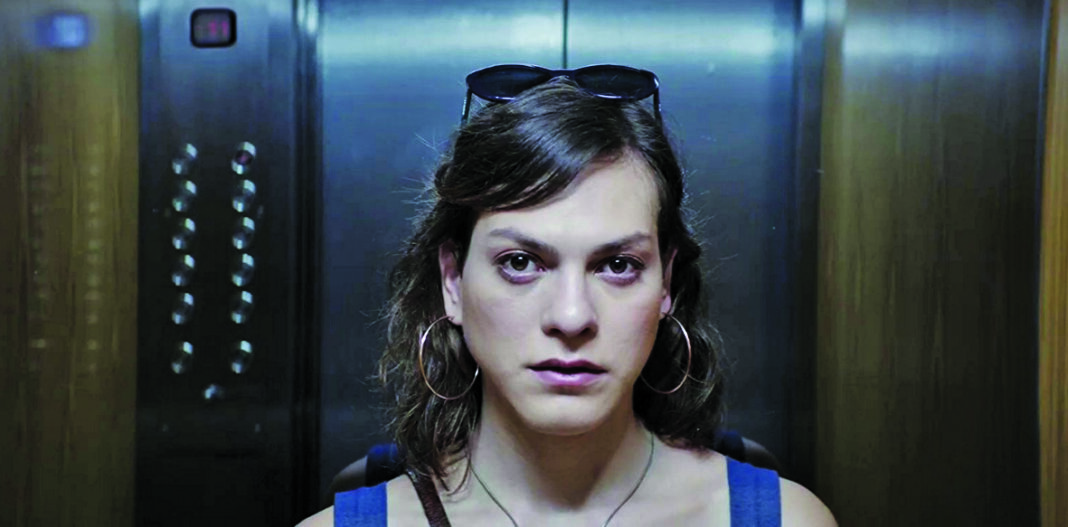The subject matter of the Chilean drama A Fantastic Woman is “Almodóvaran.” It’s visually lush like the Spanish director’s work, and yet it’s not as caught up in the world of old Hollywood dramas as Pedro Almodóvar was. The transgender actress Daniela Vega, playing a transitioning woman named Marina, maintains a slow-burning dignity in the face of repeated humiliation. And the reverie-prone director Sebastián Lelio continues to study Vega’s face.
She’s fascinating. Vega has a resemblance to Natalie Wood, with large, burning brown eyes, and a firm, melancholy mouth. She’s also a fighter—taking swings at punching bags, and shadow-boxing a bit. In one shot she clings to the safety bars inside a city bus, staring us down like an MMA fighter facing a challenger.
Leave it to Lelio (Gloria) to tell what could have been a social justice melodrama from fresh, challenging and romantic angles. Vega’s Marina, a waitress at a café next to a carnival, is the lover of Orlando (Francisco Reyes), a man who is 30 years older than her. He dies suddenly of an aneurysm. Orlando was a man of some property. His offended family members do their best to punish Marina, whom they consider a freak—“chimera” is the poisonous word that Orlando’s not-yet-divorced wife uses. They keep Marina dispossessed and barred from Orlando’s funeral. Meanwhile, a police investigation of Orlando’s death is possibly the handiwork of the family.
The color is superb. I’ve never been to Santiago, so I can’t tell if it’s a beautiful city. But in following this wronged woman past the graffitied walls and public fountains, Lelio makes the place ravishing. Even in the Bay Area, where one can usually choose the name one wants, and claim the gender that one’s soul demands, this movie has serious tartness and sharpness.









